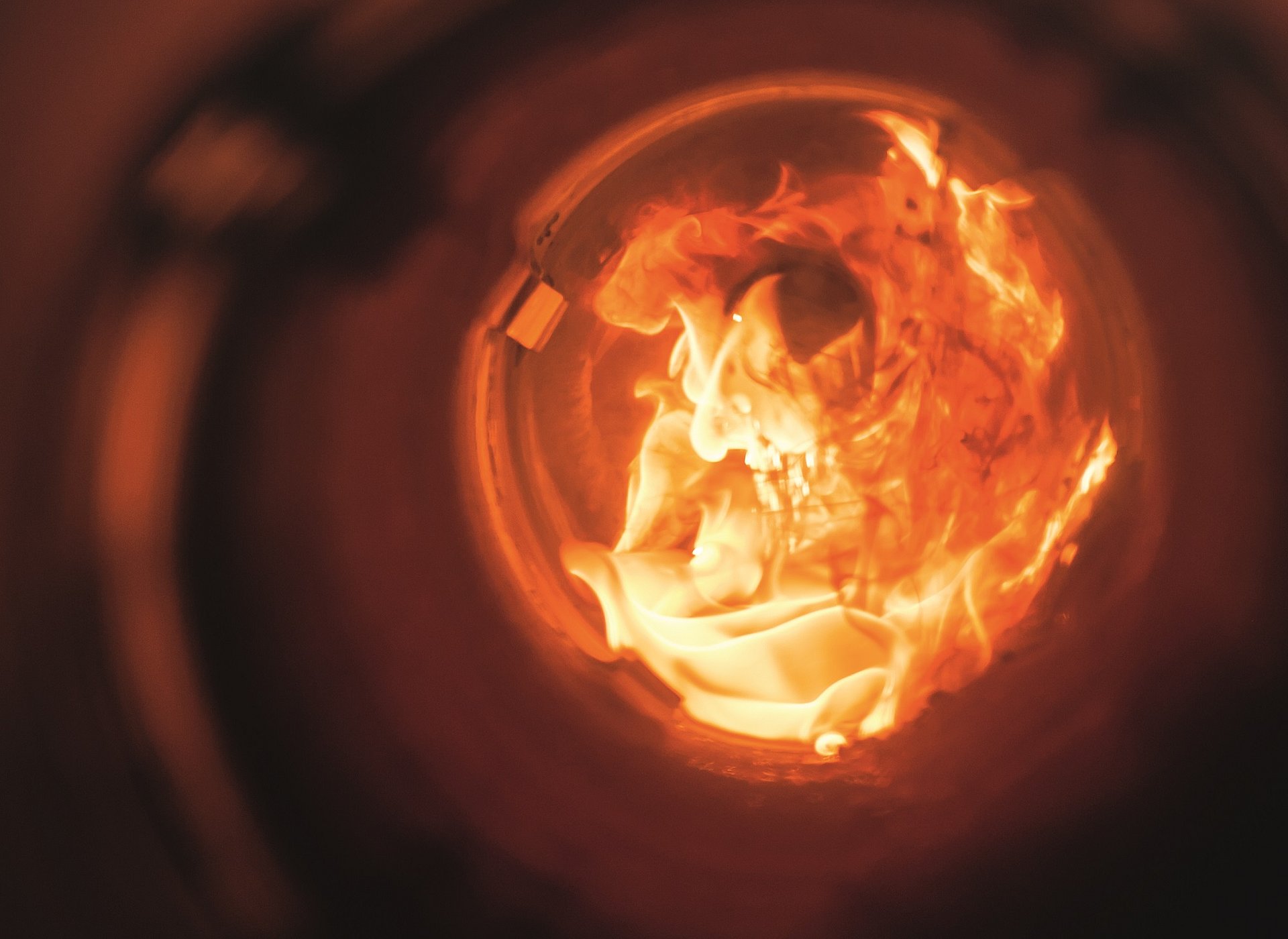However, large-scale technical systems with a rotary kiln in the center are expensive with their extensive ancillary equipment: A high investment that has to survive a correspondingly long service life – processes sometimes remain unchanged for decades. However, the economic and legislative environment is constantly changing, bringing along new requirements. This is where an engineering team starts with its contribution to process and plant optimization.
Measurements as Prerequisites for Rotary Kiln Optimization
Extensive process optimization or modernization is often necessary in order to be able to continue to operate existing large-scale rotary kilns in an energy-efficient and economical manner. In the same way, a new legal framework can result in extensive modernization and optimization measures. However, the planning and implementation of such measures requires a deep understanding and extensive knowledge of the process.
However, it is precisely this knowledge that has often been lost over the long years of plant operation. Wear can also influence the process parameters – effects that are not always easy to identify. To make matters worse, the existing process monitoring may be sufficient to monitor ongoing production, but in some cases does not allow a complete evaluation of the actual process conditions. This can only be remedied by specifically checking the existing process data and supplementing them with technological measurements.
These measurement methods range from a simple analysis of the exhaust gas composition to the determination of the inflow and exhaust gas mass flows to the complete balancing of the system. They close information gaps in the process parameters and make a comprehensive analysis of the current situation possible. They are the basis on which all further work is built.
Approaches for the Optimization of Processes and Plants
Once a database has been created and a comprehensive understanding of the process has been achieved, the development of concepts for optimizing the processes or the plant itself begins.
These can start on a small scale, for example in the identification of optimizable operating measuring points to improve process monitoring or the verification of already existing data. This makes it possible to intervene specifically in the existing process and to optimize throughput, energy requirements or plant availability. The minimization of pollutant emissions is particularly important with regard to current and future climate protection goals.
In addition to optimizing the operation of an existing plant, more comprehensive concepts for the (new) implementation of the existing process can also be developed in order to exploit the possibilities of more up-to-date technology. Here, the range extends from the use of new measuring methods to the design of state-of-the-art exhaust post-treatment systems. For example, the hitherto established wet-chemical exhaust treatment can be converted to a system based purely on solid absorption. In this way, a complex, maintenance-intensive process can be significantly simplified by using equally proven technology, while at the same time eliminating the need to dispose of any waste water produced.
The same methodology can also serve to convert an existing plant to new throughput rates or even entirely new material systems.
IBU-tec's Approach
IBU-tec’s Engineering Team can support you in all these points. With extensive experience, our experts evaluate your processes on the basis of existing operational data and can often already make targeted recommendations based on them.
If the data base is insufficient, our experienced team members fill these gaps and perform technological measurements for you, even if the necessary measuring positions are located in particularly inaccessible places or the measurements have to be taken under difficult conditions (at high temperatures or extreme dust content).
Process data measurements:
- Mass balance, heat flux measurements in the plant or individual sections, heat balance
- Volume flow measurements, process gas composition, dust quantities, material-, gas- and wall-temperatures, etc. in raw gas
- Determination of gas concentrations in the exhaust gas and within the rotary kiln (e.g. CO, O2, HCI, SO2, CO2, H2O, NO2, NO, TOC, HF, etc.)
- High-resolution pressure and vibration measurements
- Determination of heat losses, filter separation efficiencies and secondary air quantities
- Investigation of corrosive exhaust gases (e.g. by acid dew point measurement)
In order to create the basis for detailed accounting and to develop further starting points for optimization, the collected data is processed. Subsequently, it is possible to digitally simulate the process in order to be able to better represent the material and heat transport processes within the rotary kiln as well as any reactions occurring. Additionally, the collected measurement data is also validated. As a result, a very detailed understanding of the process is obtained.
These calculations make it possible to develop targeted measures for optimization or to adapt the process to new requirements. It also creates a basis on which a subsequent basic engineering can be built if the optimization and adaptation of the process requires it.
We can also support you in all subsequent steps of engineering, plant planning and plant construction. More on this in one of our future posts, stay up to date and continue to follow us in our blog!
Christian Kühnert
Technical Sales - National
Telephone: +49 - 3643 8649 - 89
E-Mail: kuehnert(at)ibu-tec.de
German, English
Dr. Nico Zobel
Director Sales Services & Products
Telephone: +49 - 3643 8649 - 38
E-Mail: zobel(at)ibu-tec.de
German, English
Dr. Jannis Hebbeler
Technical Sales - National
Telephone:+49 - 3643 8649 - 638
E-Mail: hebbeler(at)ibu-tec.de
German, English
Dr. Stefan Schwarz
Head of Sales Cathode Material
Telephone: +49 - 3643 8649 - 386
E-Mail: schwarz(at)ibu-tec.de
German, English
Elahe Isazadeh
Technical Sales - International
Telephone: +49 - 3643 8649 - 234
E-Mail: isazadeh(at)ibu-tec.de
German, English, Persian


